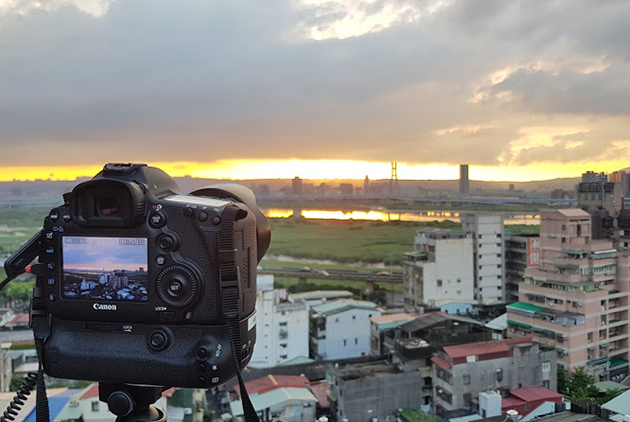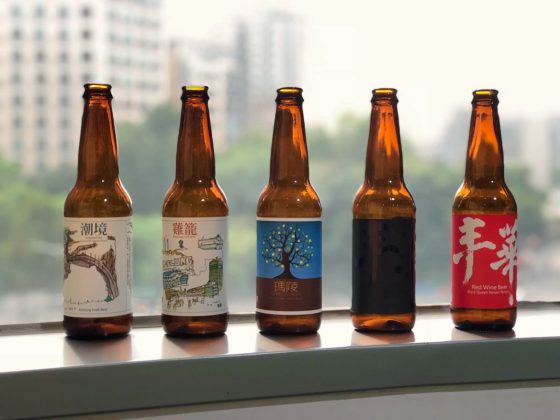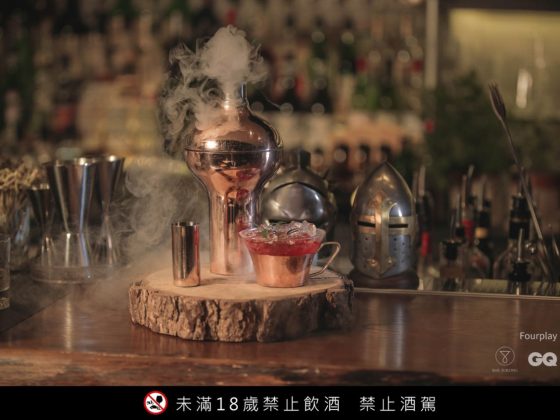What is the taste of home? If you ask Matzen, it’s that particular smell that tickles your nose when you arrive at Taoyuan International Airport!
“When you step out of the airplane at Taoyuan Airport I get this smell, it is still the same, that smell reminds me of home,” remarks Matzen. He describes his arrival in Taiwan during his first trip to Asia almost as a deja vu experience. “During that trip, I switched planes in Bangkok and went to Shanghai. A few months later I also went to South Korea. But Taiwan was special, I had that home feeling…like I’ve been here before; I just had this kind of connection.”
Henrik, who turned 43 this year, is a professional photographer. Since late May, when A Taste of Taiwan, which he produced together with his business partner Jonas Hoholt, was posted on Facebook, it has been shared more than 1,600 times. To date, it registered more than 180,000 hits.
A Gift for Taiwan
For the 90-second video, Matzen shot 70,000 pictures over a period of three months, all at his own cost. Of these, about 30,000 still photos were chosen and turned into a time lapse video with painstaking efforts by Hoholt. The video stuns audiences with breathtaking views, shot between dawn and dusk to document multi-faceted Taiwan – there is iconic Taipei 101 in the north and Kaohsiung Port in the south, temple premises and waterfalls, rural villages and metropolitan cityscapes.
“When shooting the 101, I had to lug 25 kilograms of gear and water up the mountain. We waited for four hours on Xiangshan; it was very hot on that day. About halfway I felt I couldn’t make it,” recalls Matzen about this “very extreme” experience. “However, I want the whole world to see the beauty of Taiwan. The video is our gift for Taiwan, an expression of our love for Taiwan and all those who let us experience the human touch of Taiwan.” (Related Content: A Perfect Day in Taipei’s Xinyi District)
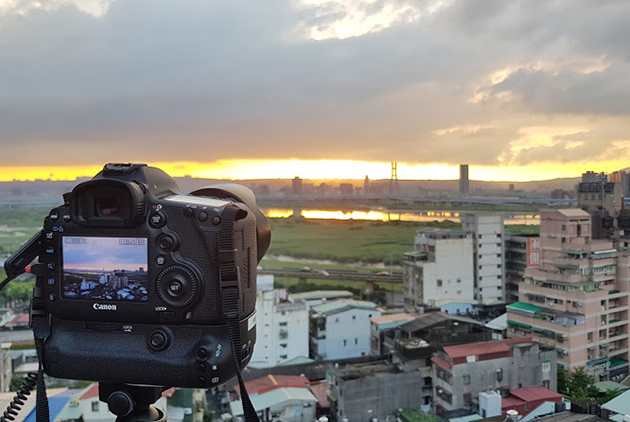
Since 2005, this Scandinavian photographer has kept going back and forth between Denmark and Taiwan. Though Matzen has not settled permanently in Taiwan, over the years the periods he spent on the island have grown from two weeks to three weeks to months. Even his Taiwanese friends greet him with a “welcome back home” as if he was actually living in Taiwan.
“Taiwan is my second home,” Matzen says.
Matzen’s very first encounter with Taiwan was not on a photo shoot but because of computers. Matzen, who hails from a small town in Denmark, was interested in computers from childhood on. At age 20 he founded the first computer store in his hometown together with his cousin. Later on, he joined a large Danish computer system integration vendor, where he was responsible for purchasing and marketing. That’s how he began to build contacts with Taiwan.
Witnessing the Golden Age of Taiwan’s IT Industry
It was during the 1990s when Taiwan’s information industry entered an era of exponential growth as manufacturers churned out motherboards, computer mice, keyboards, network cards and monitors for worldwide export. With Taiwan being the No. 1 in the world for many products, Matzen began to develop business contacts with Taiwanese manufacturers such as MSI, Ruby Tech, and First International Computer.
“I started to get to know Taiwan because I had partners here. And everything was basically by fax, people don’t know fax anymore…I just remember most companies I dealt with did not have email yet and emails would normally not go through, but fax worked,” Matzen fondly recalls how he initially communicated with overseas suppliers in that “golden age.”
In 2005, after many invitations from Taiwanese suppliers, Matzen’s company finally allowed him to attend Computex Taipei, Taiwan’s annual international computer show, with some colleagues. Although Matzen came only for a two week business trip that time, he was already sure that he would return when he left Taiwan. In the following years he kept coming to Taiwan for the Computex Taipei, and his company allowed him to prolong his trips year after year to consolidate relations with its Taiwanese suppliers.
“I was different from other purchasers who came only for a few days and did nothing but negotiate prices. I had very good relations with the suppliers; these people have all become my friends,” says Matzen.
An Outsider Turning Local
In 2007 Matzen discovered another aspect of Taiwanese life that fascinated him: Traditional Chinese medicine. Back then he suffered from an inflammation of the intestine resulting from stress. His Danish doctor suggested surgery, but Matzen looked for an alternative therapy.
He took a few weeks of leave and traveled to Taiwan, where a friend introduced him to a traditional Chinese medicine practitioner. “After a week of treatment with acupuncture, Chinese herbal medicine, and following a certain diet, I started to feel the difference; it helped, it worked,” notes Matzen. The positive experience made him come back for longer stays.
He also began to get out of the city to explore the scenic beauty of Taiwan. In the early days, Matzen could not speak any Chinese. Once when he made a tour around the island with a Danish childhood friend, he still needed to rely on his friends in Taipei for support by phone along the route. A few years later, when this friend came to see him during a second visit to Taiwan he found Matzen a changed man.
“My friend said you’ve changed so much, you look like a local,” he said. Matzen who meanwhile speaks “very simple” Chinese, is happy that now he is at least able to order a cup of coffee or a bowl of beef noodles by himself.
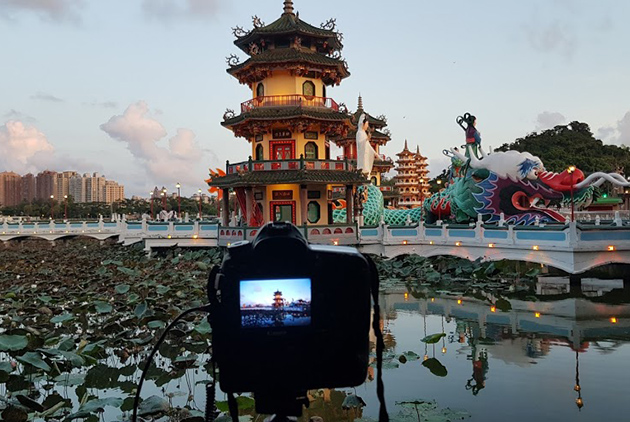
Although Matzen once had a steady Taiwanese girlfriend and has been dating over the years, none of the relationships have lasted. He notes that he did not come to Taiwan because of a love affair but because of the people here. Matzen’s parents once also visited Taiwan, eager to find out why their son was so smitten with this island. On a weekend, the trio got on a packed train where a father, occupying two seats with his three children, insisted that Matzen’s parents sit down instead. Matzen’s parents were overwhelmed.
“My parents are frequent travelers. They visit a lot of places in the world, they visit Asia, they’ve been around, but they still say Taiwan is special,” Matzen says. “It’s all the little things…the friendliness from complete strangers.”
After Matzen’s employer was merged, he gradually pulled out of the IT industry. He still serves as Scandinavian market consultant for Taiwanese manufacturers and visits Computex every year, as before. Matzen’s focus, however, has shifted to photography, a passion he developed as a young boy, inspired by the magic that his hobby photographer father performed in the dark room of the family home. “I saw the magic when I was with my dad in the dark room, seeing this piece of white paper turning into a picture…it’s just like magic,” Matzen recalls.
With his Danish friend Jonas Hoholt, a time lapse photography expert, Matzen went to co-found video and timelapse production company FIRSTLAPSE. Aside from producing commercial videos for corporate clients and promoting cities in a very unique way, the first thing Matzen wanted to do is shoot A Taste of Taiwan.
“When Jonas saw the pictures that I had shot in Taiwan, he also felt it’s amazing…I spent three months shooting them because I did it in my spare time, and Jonas spent a long time editing them,” explains Matzen.
Not a Ghost Island
Given that many Taiwanese enviously look to the seemingly good life in Scandinavia, does Matzen also feel that Taiwan is a “ghost island,” a pejorative term used to describe a lack of prospects and hope? Matzen takes considerable time to come up with an answer because he feels “Generally it’s very positive.” But then he relays his experience living in Taipei’s Wanhua District for half a year.
“There were a lot of homeless, sick people who could not get proper help. I believe this is quite a bad thing because they are kind of left in a no man’s land. They live in a very miserable way. There are these dark sides we normally don’t see and most tourists wouldn’t see,” he notes, calling for more support for such people in need.
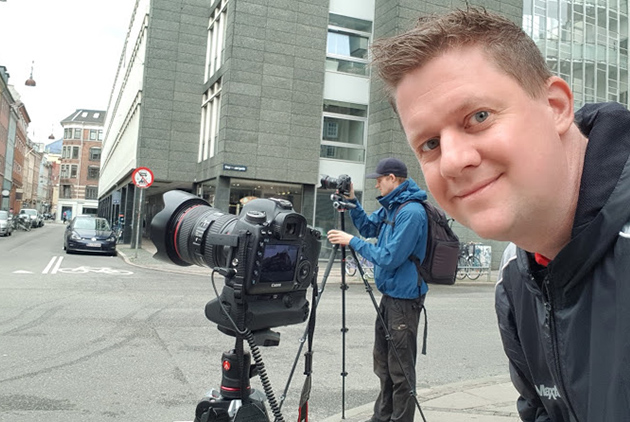
Matzen points out that he was touched every day that the shopkeepers in the neighborhood and even the homeless would smile at him and greet him after a while. Despite many people shunning Wanhua as a dangerous and dirty place, Matzen states: “Honestly, I loved to stay there because I felt so local.”
Pointing to the dominance of bad news in Taiwanese media, Matzen says he is more of a “think positive” person. “Of course, you can meet bad people everywhere, but I see more the positive sides,” he notes, which is why he wanted to “do something positive for Taiwan.”
The initial idea was to shoot a time lapse video in Wanhua to portray the neighborhood’s vitality with its temples, small shops and friendly people and draw attention to the situation of the homeless. “Originally, I wanted to do something for Wanhua, but it kind of escalated,” remarks Matzen. So he went on to take photographs all over Taiwan. “I wanted to do something for Taiwan to show the beauty, to show the difference, to let people know, because originally I wanted to help homeless people, to help people in need. So I think if I can help to let the world know Taiwan and bring in more tourists, it will still bring money for the country.”
Matzen hopes to collaborate with Taiwan’s Tourism Bureau or Taiwanese companies in the future to create more videos that “spread the beauty of Taiwan.” “This is just a beginning; hopefully A Taste of Taiwan can catapult us into something.”
Translated from the Chinese Article by Susanne Ganz
Edited by Shawn Chou
(This article is reproduced under the permission of CommonWealth Magazine English Website. It does not represent the standpoint of Taiwan Scene.)
More voices from Taiwan: Taiwan’s First Professional Underwater Cetacean Photographer

